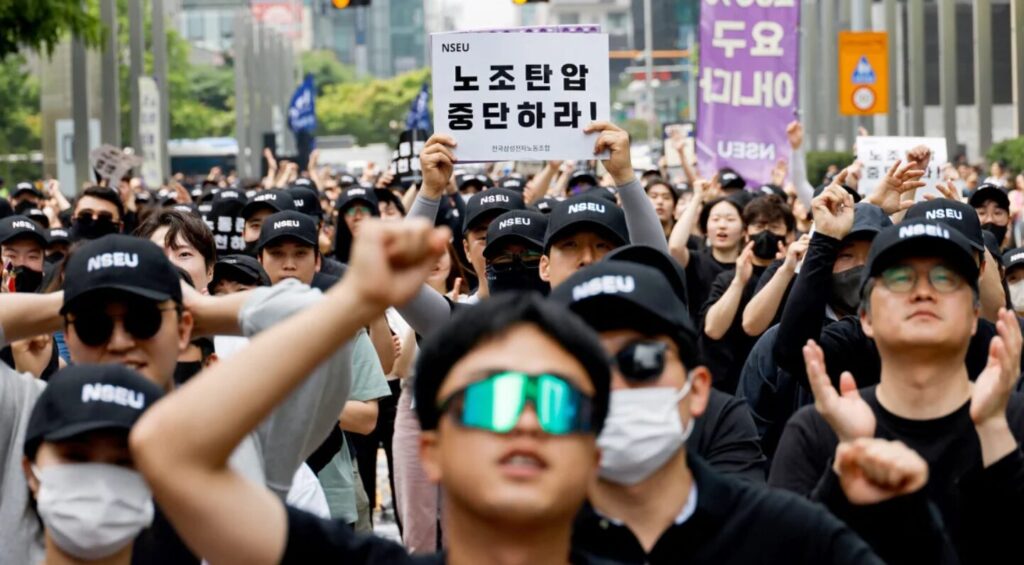|
Getting your Trinity Audio player ready...
|
SEOUL, South Korea — In a dramatic turn of events, Samsung Electronics, South Korea’s largest semiconductor manufacturer, has seen its market capitalization shrink by an astounding 90 trillion won ($66.6 billion) since September.
The sharp decline in value is largely attributed to a continuous sell-off by foreign investors, marking one of the longest selling streaks in recent history.
Foreign Investors Unload Samsung Shares at Record Pace
The mass exodus of foreign capital from Samsung Electronics began in early September, with overseas investors net selling 10.6 trillion won ($7.9 billion) in shares over the past month, according to data from the Korea Exchange.
This marks 23 consecutive days of selling, just short of the 25-day streak recorded in 2022. Samsung’s stock price tumbled by 20.3% during this period, dropping from 74,400 won to 59,300 won, significantly outpacing the overall market decline of 2.9% on the Kospi.
Foreign investors had been net buyers of Samsung shares for the first seven months of the year, purchasing 10.76 trillion won ($8.02 billion) worth of shares. However, the trend reversed sharply in August, with foreign investors offloading a net 12.65 trillion won ($9.4 billion) since then.
This sell-off caused foreign ownership of Samsung Electronics to fall by 2.27% from 56.02% at the end of August to 53.75% by the end of September—marking the largest monthly decline in foreign ownership in two decades.
Weaker-Than-Expected Earnings Fuel Stock Slide
Samsung’s stock woes have been exacerbated by weaker-than-expected earnings in the third quarter. The company reported an estimated operating profit of 9.1 trillion won ($6.7 billion), falling short of the brokerage consensus of 10.77 trillion won ($8.02 billion). While Samsung projected record sales of 79 trillion won ($58.9 billion) for the quarter, the figure still lagged behind the market’s expectation of 80.9 trillion won ($60.3 billion), further dampening investor confidence.
The weaker earnings report highlights the ongoing challenges in the global semiconductor market, including soft demand and the global economic slowdown, which have put pressure on profits. As the world’s largest memory chip producer, Samsung Electronics has been particularly vulnerable to fluctuating demand for memory chips and electronic devices.
SK Hynix Defies the Trend as Foreign Investors Show Confidence
In contrast to Samsung’s recent struggles, SK hynix, Samsung’s domestic rival and South Korea’s second-largest chipmaker, has been faring better in the eyes of foreign investors. Since Sept. 3, foreign buyers have poured a net 328.76 billion won ($245 million) into SK hynix stock, making it the most purchased stock on the Kospi during this period.
Despite broader industry pessimism, foreign investors’ confidence in SK hynix suggests a more optimistic outlook for the company. SK hynix has managed to avoid the steep declines plaguing the rest of the sector, demonstrating its resilience in a challenging market.
The company’s strategic focus on high-end memory products and diversification into emerging technologies, such as Artificial Intelligence (AI) and cloud computing, has likely contributed to the positive sentiment.
